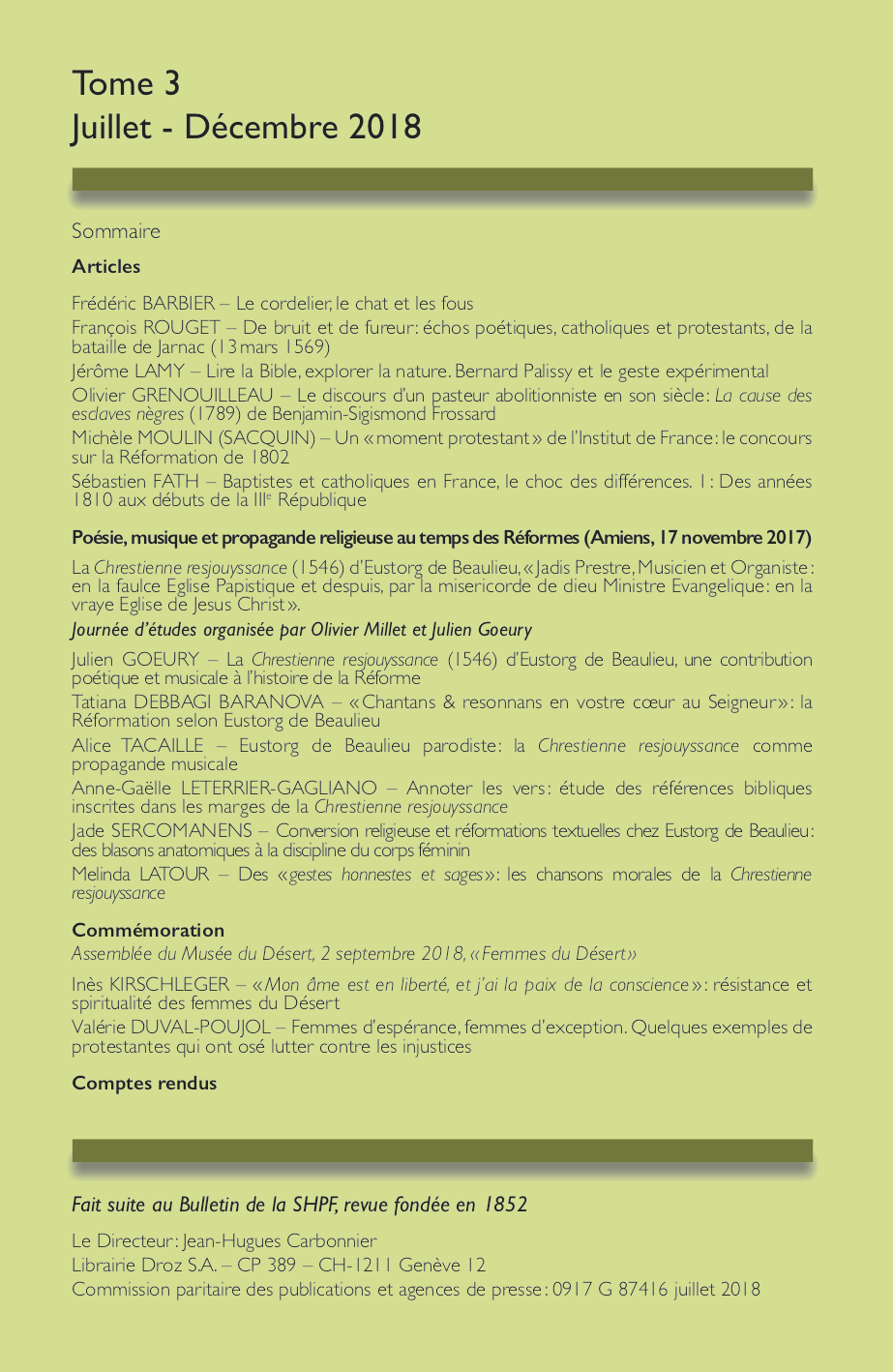Eustorg de Beaulieu parodiste :
la Chrestienne resjouyssance comme propagande musicale
Abstract
From a musical perspective, there are in Eustorg de Beaulieu’s Chrestienne resjouyssance as many contemporary melodies as texts using them (160 songs). Although the use of these melodies is obscured in that they can only be recognised by the mention of their title, they witness of a musician who was very well acquainted with the parodic techniques of his age. There are numerous lines connecting these songs to the Lyon context, as well as to the parodies of the French Noellists. When Beaulieu is situated in the context of the parodists and the contemporary production of polyphonic music, the profound nature of his project becomes readily visible, namely to match textual words and musical time. Under his hands, the first “timbres” of the early modern period were placed in the service of a versification inspired by the Reformation and elevating metre and rhythm above all other considerations; it was in this reserved space that the poet could attain perfection. La Chrestienne resjouyssance was by far the largest collection of timbre-songs of the time, and also the very first work on timbre from the early modern period.
